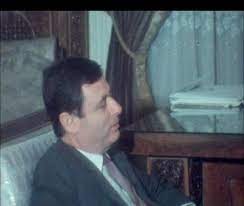Syrian sources said today that President Hafez al-Assad had received and rejected a request from President Reagan that Syria reconsider its refusal to give sanctuary to Palestinian guerrillas trapped in west Beirut by Israeli forces.
The Syrian position, the sources said, continues to be that the special American envoy, Philip C. Habib, should be seeking the withdrawal of the Israeli forces from Lebanon rather than the evacuation of the Palestinian guerrillas.
The informants also pointed out that Syria had received no request from the Palestine Liberation Organization that it take in guerrillas.
The Reagan request was said to have been contained in a written message delivered to President Assad on Wednesday by Ambassador Robert P. Paganelli. Syria Had Issued Complaint
The contents of the message were not made public, but it was described as the first substantive message from the Reagan Administration to the Syrian President. It came after official complaints from Damascus that the Syrian Government had not been consulted on the proposals that Mr. Habib was discussing in Beirut for solving the Lebanese crisis even though they directly involved Syria.
Meanwhile, Syria’s Foreign Minister and Deputy Prime Minister, Abdel Halim Khaddam, flew to Cyprus today to attend a meeting on the Lebanese crisis with representatives of third world countries that profess nonalignment.
He was expected to seek strong endorsement for Syria’s position before flying to Washington for a meeting Tuesday with President Reagan. Official sources in Damascus said Mr. Khaddam would ask Mr. Reagan to help obtain an Israeli withdrawal from Lebanon.
Saudi Arabia’s Foreign Minister, Prince Saud al-Faisal, is also due in Washington Tuesday to see Mr. Reagan on the Lebanese crisis. Meetings Seen as Significant
Diplomats in Damascus said the Washington visits would be of primary significance because President Reagan will be meeting with representatives of the two mainstreams in the Arab world – the Saudi minister, who is a spokesman for Arabs known as moderates, and the Syrian, who represents the hard-liners. It will also be the Reagan Administration’s first contact with a top Syrian official.

